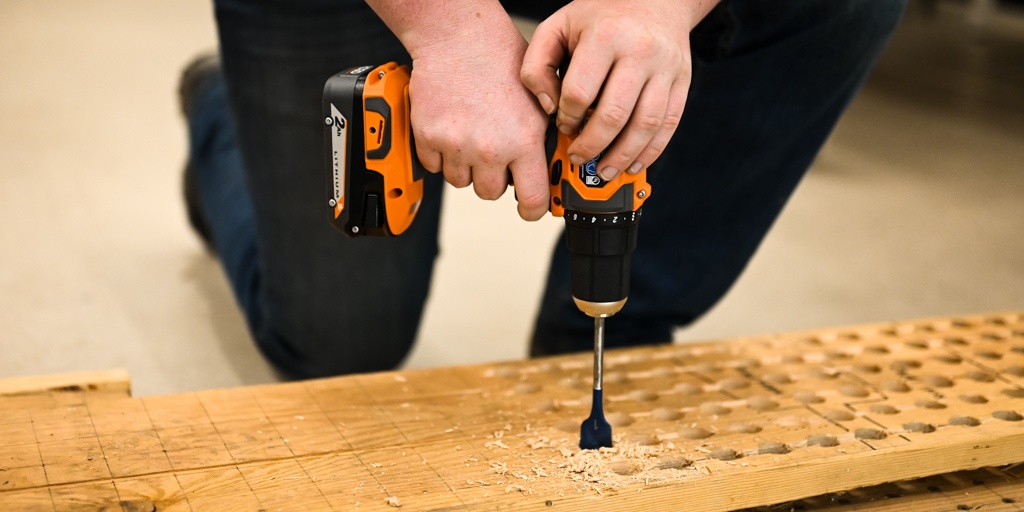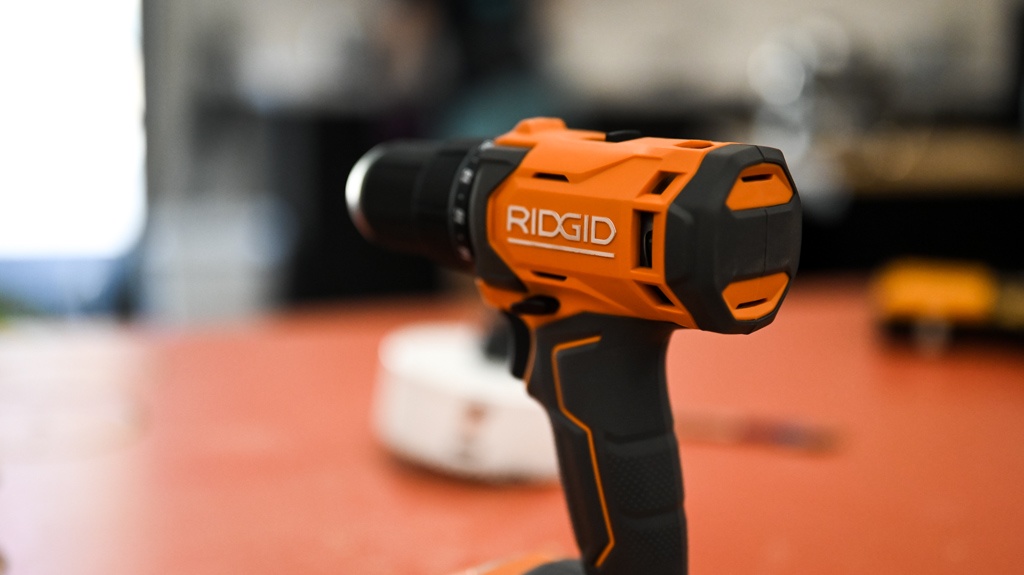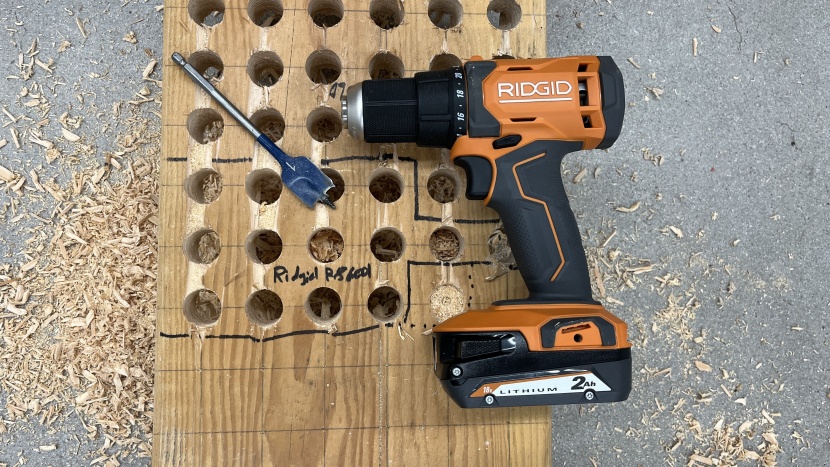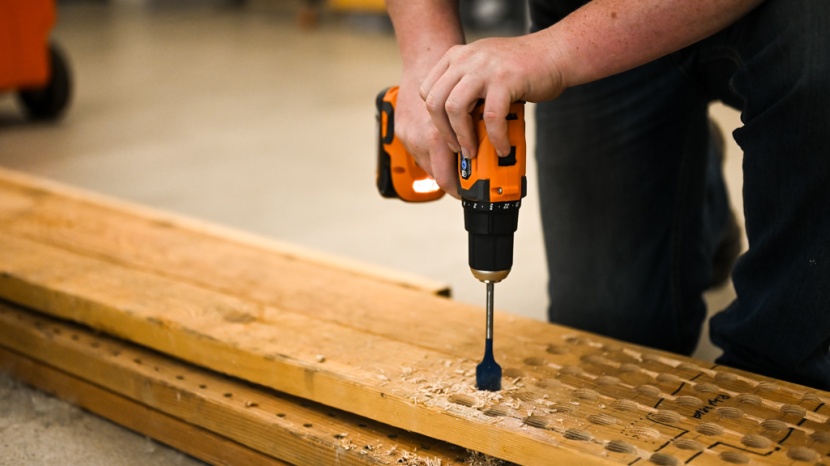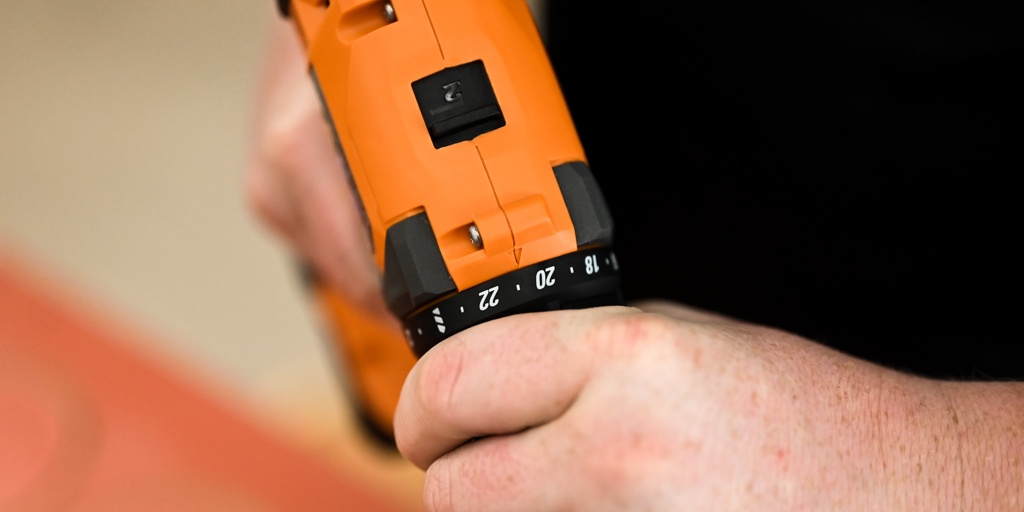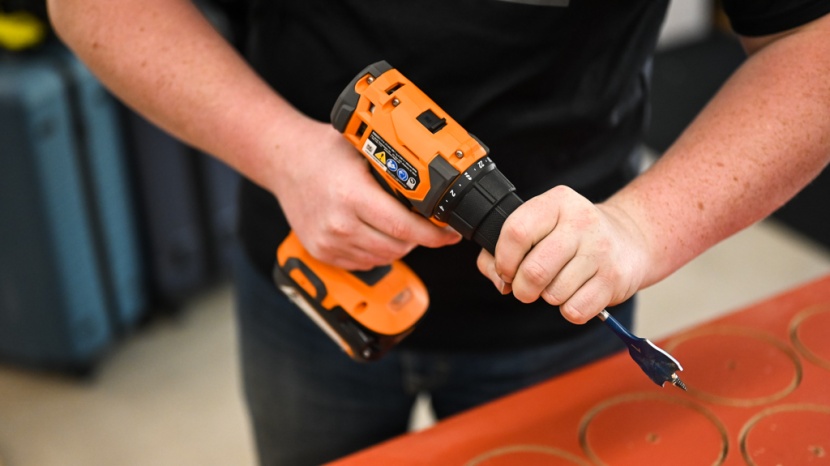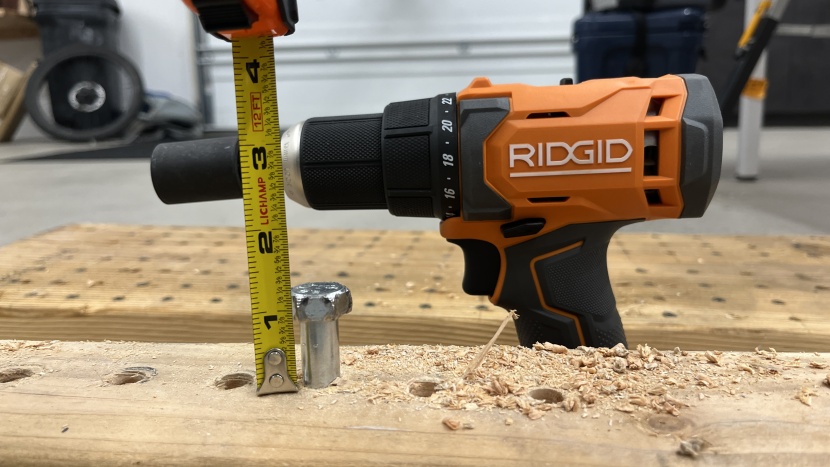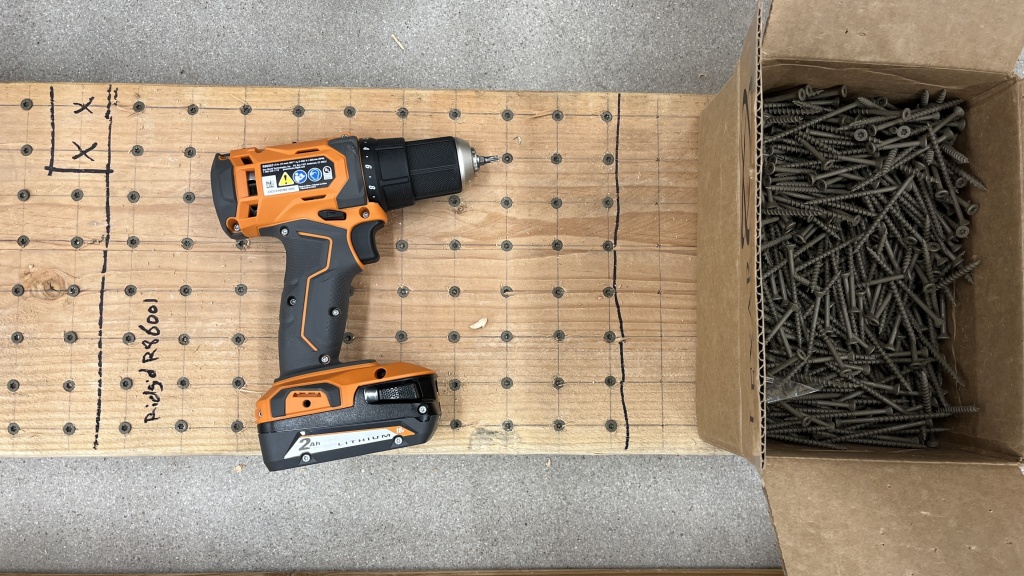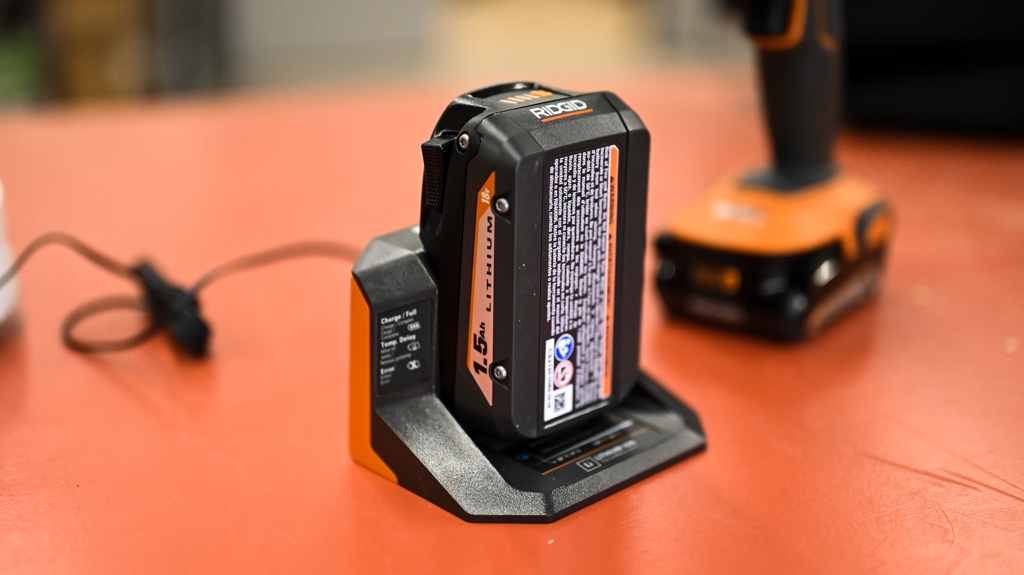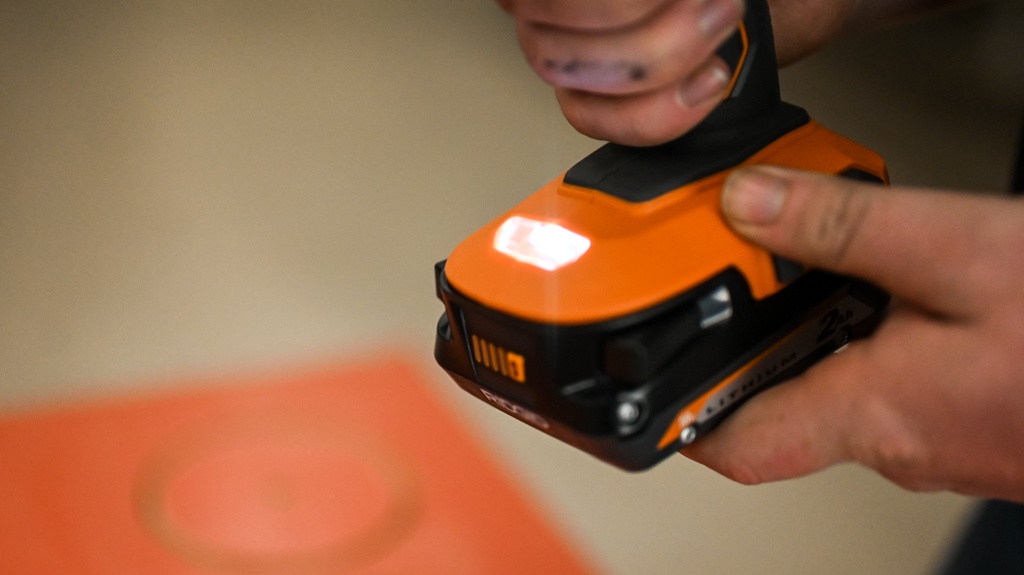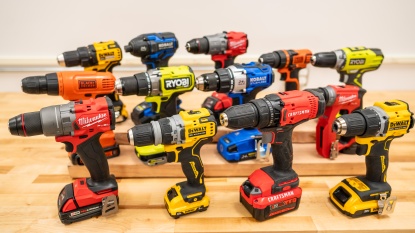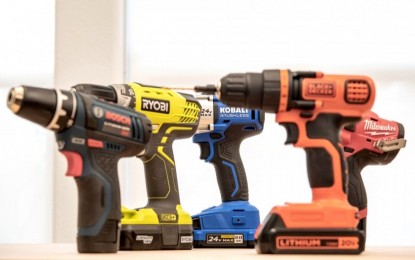
Our Verdict
Our Analysis and Test Results
Drilling
Overall, the Ridgid R86001 is a middling product.
It was able to drill a hole in the door using the hole saw fairly easily, although it took 30 seconds to complete the task, while other models we've tested have gotten it done in 15 or 20 seconds. When we used a paddle bit with the Ridgid, we found that it tore through wood at a roughly average pace, provided it was in its lowest gear. The paddle stopped every time we tried to put extra pressure on the back of the drill to get it to go faster. It eventually broke through the bottom of the board just fine.
Out of all the punishment and abuse we gave these devices during our review, drilling through 16 gauge sheet metal proved to be this model's favorite job. It drilled each hole in 3 to 4 seconds; almost on par with the top-tier models, which averaged 2 to 3 seconds. Several models took 10 seconds per hole.
Driving
The Ridgid R86001 was not exactly what we call a strong performer for this metric, but it wasn't horrible.
When attempting to driv a 5" long, 1/2" lag screw, the R86001 showed a strong start but then stopped with about 1 ⅛" of the screw left on the first attempt at driving. We were able to get it to tighten the screw down to ⅞" by pulling the trigger a few more times, but that's as far as it could go.
During the 3" wood screw comparisons, our team found that the Ridgid R86001 could sink screws quickly and completely flush with the wood when the battery was fresh. Still, the device got slower and slower in an unusually short period compared to other models.
Battery Life
Again, the Ridgid R86001 showed slightly below-average results in our battery tests. It made it through nearly four complete sets of screws and holes, but died after drilling the third hole on this round. The models that had the best battery life were able to get through ten sets of our drilling/driving routine.
It took this model's battery a full hour to charge, which is pretty bad considering it also has a short life.
Convenience
The main feature we found that stands out on the Ridgid R86001 is that when you pull the trigger, there is a certain point where the light turns on before the device begins to spin. We found this feature helpful when working in dark spaces with certain fasteners.
Should You Buy the Ridgid?
The main reason that we would recommend buying the Ridgid R86001 is if you already own the compatible battery and charger. If you buy the “tool-only” option of this model, you would drastically lessen the hit to your pocketbook. Although the R86001 is a few bucks cheaper than many of the drills in our review, there are models that cost much less but offer the same level of performance as the Ridgid.
What Other Drill Should You Consider?
If you want a cutting-edge, best-of-the-best drill, we recommend the Milwaukee M18 Fuel 1/2" Drill Driver. This model outperformed every other we've seen to date. If you're in the market for a 12-volt version that packs a punch but is small enough to toss in your junk drawer, check out the Bosch 12V Max Drill/Driver Kit PS31-2A.


